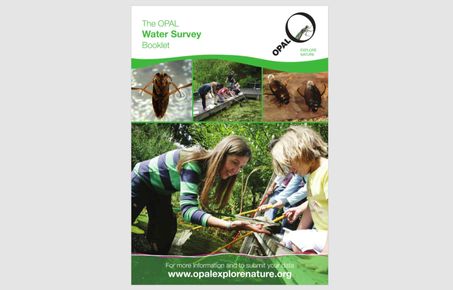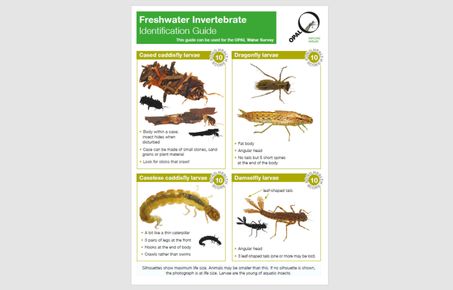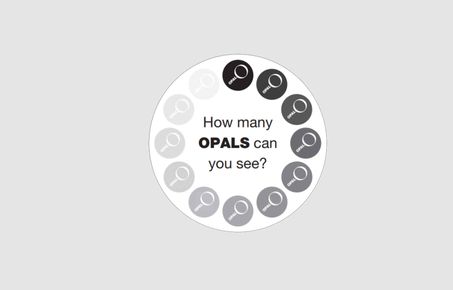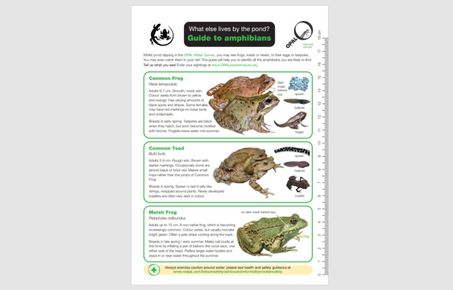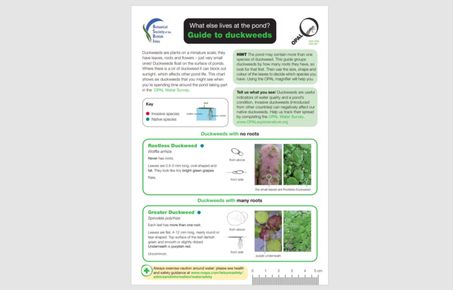Water Survey
 Surprisingly little is known about the quality of the UK’s freshwater bodies. Ponds, rivers and lakes support a huge variety of plants and animals, and us too. Good water quality is essential for a functioning, healthy ecosystem. However, water is easily affected by pollutants from the air and on land. The aim of the OPAL Water Survey was to provide a national ‘snap-shot’ assessment of water quality for as many lakes and ponds across the UK as possible, and, in doing so, to improve education and awareness of aquatic environments.
Surprisingly little is known about the quality of the UK’s freshwater bodies. Ponds, rivers and lakes support a huge variety of plants and animals, and us too. Good water quality is essential for a functioning, healthy ecosystem. However, water is easily affected by pollutants from the air and on land. The aim of the OPAL Water Survey was to provide a national ‘snap-shot’ assessment of water quality for as many lakes and ponds across the UK as possible, and, in doing so, to improve education and awareness of aquatic environments.
The Water Survey includes four activities to help participants build a picture of water quality in their local environment:
- Measuring water clarity – using the OPALometer
- Measuring water pH using a dip-strip
- Recording the presence or absence of aquatic invertebrate ‘indicator species’
- Recording the presence or absence of amphibians, dragonflies, damselflies and duckweed
Survey Resources
Welsh Language Versions
Additional Resources
Survey results

In focus - data quality and control
 When data are collected by non-experts there is a concern that this might not be of high enough quality to be useful for research purposes, especially when volunteers are mostly untrained and can submit data anonymously - as was the case with OPAL. To better understand the data from the OPAL Water Survey, the Water Survey team carried out a series of activities investigating the data and its reliability, whereby they:
When data are collected by non-experts there is a concern that this might not be of high enough quality to be useful for research purposes, especially when volunteers are mostly untrained and can submit data anonymously - as was the case with OPAL. To better understand the data from the OPAL Water Survey, the Water Survey team carried out a series of activities investigating the data and its reliability, whereby they:
- Examined the effect of surveying effort and duration by comparing different sampling methods at 10 lakes (870 surveys performed)
- Compared the accuracy of species identification between untrained volunteers and experienced scientists
- Created a self-assessment identification quiz to assess the level of expertise of individuals submitting data
- Compared the data collected using simplified OPAL methods with data collected using other more rigorously scientific technical approaches
These investigations demonstrated that simple sampling and identification methods, as used in the OPAL Water Survey, can allow the collection of repeatable results, particularly where multiple habitats are sampled and summarised in a single pond health score. Although there will always be inherent uncertainty in data collected by untrained volunteers, the application of quality control at all survey stages (design, identification tests, data submission and interpretation) can help increase confidence in the quality of generated data.
To read the full academic paper, see Rose et al. (2016).
Academic papers
- Rose, N.L., Turner, S.D., Goldsmith, B., Gosling, L., and Davidson, T.A. (2016) Quality control in public participation assessments of water quality: the OPAL Water Survey, BMC Ecology, 16: 23-43.
- Rae, M., Miró, A., Hall, J., O’Brien, B. and O’Brien, D. (2018) Evaluating the validity of a simple citizen science index for assessing the ecological status of urban drainage ponds. Ecological Indicators, 98: 1-8.
- Rose, N.L., Turner, S.D., Yang, H., Yang, C., Hall, C. and Harrad, S. (2018) Palaeotoxicity: reconstructing the risk of multiple sedimentary pollutants to freshwater organisms, Environmental Geochemistry and Health, 40(4): 667-1682.
- Turner, S.D., Rose, N. L., Goldsmith, B., Bearcock, J. M., Scheib, C., and Yang, H. (2017) Using public participation to sample trace metals in lake surface sediments: the OPAL Metals Survey, Environmental Monitoring and Assessment, 189:241.
Other reports and publications
- Turner, S., Rose, N., Goldsmith, B., Harrad, S., Davidson, T. (2013) OPAL Water Centre Monitoring Report (2008-2012). Open Air Laboratories.



